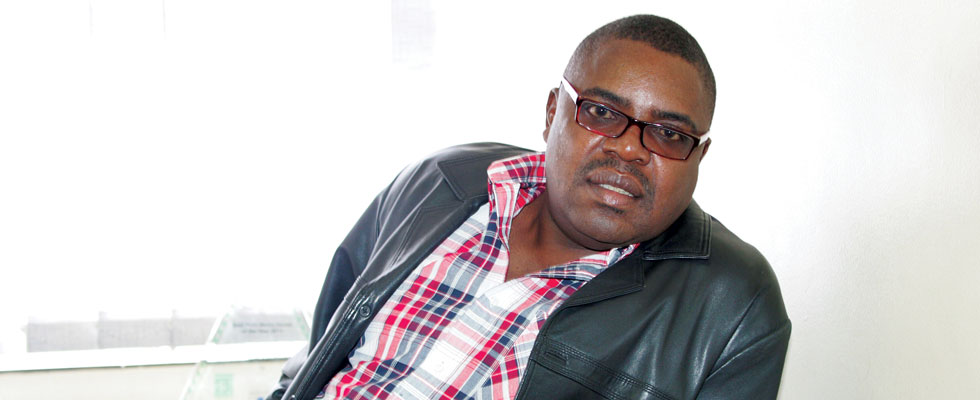
A few weeks ago I boarded a plane at Amsterdam Airport Schiphol, the very same airport the ill-fated Malaysian Flight MH17 took off from last Thursday before crashing a few hours later in an area in Ukraine held by pro-Russia rebels killing all 298 people on board.
Nevanji Madnhire
Schiphol is a big airport, perhaps bigger in area than some of our small towns such as Kwekwe.
It is the fourth busiest airport in Europe in terms of passengers. So, one can imagine the mix in terms of race and nationality of travellers who pass by this place every day.
Any international traveller will tell you that although flying is said to be the safest mode of travel today, no one ever feels completely safe on a plane.
I think it all has to do with the fact that human beings are land animals!
To imagine that one is suspended 10 000 metres above Mother Earth by some scientific law of aerodynamics is just like a leap of faith.
I was satisfied with the security checks everyone went through. Our bags were scanned, so were our bodies.
- Chamisa under fire over US$120K donation
- Mavhunga puts DeMbare into Chibuku quarterfinals
- Pension funds bet on Cabora Bassa oilfields
- Councils defy govt fire tender directive
Keep Reading
We removed our watches and belts. All metallic gadgets were given a thorough look-over electronically. There was a separate scanner for the shoes we wore and our computers.
By the time we got onto the plane I was satisfied nothing would go wrong. So I settled in my seat and began to read the available inflight literature, looking forward to the 10-hour flight from Amsterdam to Harare.
Two seats away sat a young mademoiselle who turned out to be flying to Africa for the first time. She was coming to visit friends in Zimbabwe.
I only took particular interest in her when she broke down and began to cry.
A stewardess came to help; she took her to the front of the aircraft and after many minutes of counselling she returned to her seat less agitated.
It later turned out she had broken down because she was scared of the men of Arabian extraction among the passengers. I too had been worried a bit when I saw them come in and take their seats. I was worried even more when I realised the youngest of them was very restless; he would never settle in his seat, but paced up and down the aisle for no apparent reason. I reassured myself that the security checks had been thorough enough to ensure no terrorists came aboard the plane.
But not the young American lass!
One thing was clear though: the fear of terrorism is now deeply etched in everyone’s psyche ever since the 9/11 terrorist attacks in New York and Washington.
Americans must be particularly wary of flying in aircraft teeming with Asian men and women as evidenced by the young woman. But will anyone ever believe they can trust everyone on the aircraft they are travelling on?
When people were thinking that terrorists only blow themselves in planes and die with all the innocent passengers, now another dimension has emerged; they are now blowing up civilian aircraft from the ground.
This makes everything even more complicated. Is air travel safe anymore considering the amount conflict in the world? Whatever the case might be, shooting down a civilian aircraft can never be justifiable.
I know some readers will take me back to our own hour of infamy when an Air Rhodesia Flight 825 on a scheduled passenger flight was shot down by Zipra guerrillas on September 3 1978 during the liberation war.
The aircraft was flying from Victoria Falls to Salisbury (Harare) when it was hit by a heat-seeking missile. According to reports [Wikipedia], of the 52 passengers and four crew, 38 died in this crash; the insurgents then approached the wreckage, rounded up the 10 survivors they could see and massacred them with automatic gunfire. Three passengers survived by hiding in the surrounding bush, while a further five lived because they had gone to look for water before the guerrillas arrived.
Zipra leader Joshua Nkomo publicly claimed responsibility. Five months later, in February 1979, Zipra shot down Air Rhodesia Flight 827, another civilian flight, in an almost identical incident.
There has been lots of debate on whether the downing of the two aircraft moved the war of liberation forward and, if it did, whether the end justified the means.
The backlash was immediate and very painful; camps in both Zambia and Mozambique, the springboards of the guerrilla insurgency, were bombed by Rhodesian forces resulting in the deaths of thousands of civilians.
I am sure there are families and individuals who never forgave Joshua Nkomo for this.
War is a painful thing mainly because civilians always bear its brunt.
In spite of the show of bravado, soldiers are really just cowards. They train to fight other armed people but rarely ever do so. Instead they go for the weak targets – unarmed civilians.
Obviously, whoever shot down Flight MH17 got the international attention they sought. But they can never imagine the pain they have left behind.
The same can be said of the Israeli bombings in Gaza, where more than 500 people, mainly civilians, have already been massacred by Israeli fire. It is the indiscriminate targeting of civilians which is shocking.
Equally shocking is the international community’s indifference to the events in Gaza. We have not seen the same response from the Western world in Gaza as has been shown in Ukraine.
It only goes to show how civilians are simply collateral damage in the eyes of politicians. Fear among civilians is now all pervasive.











